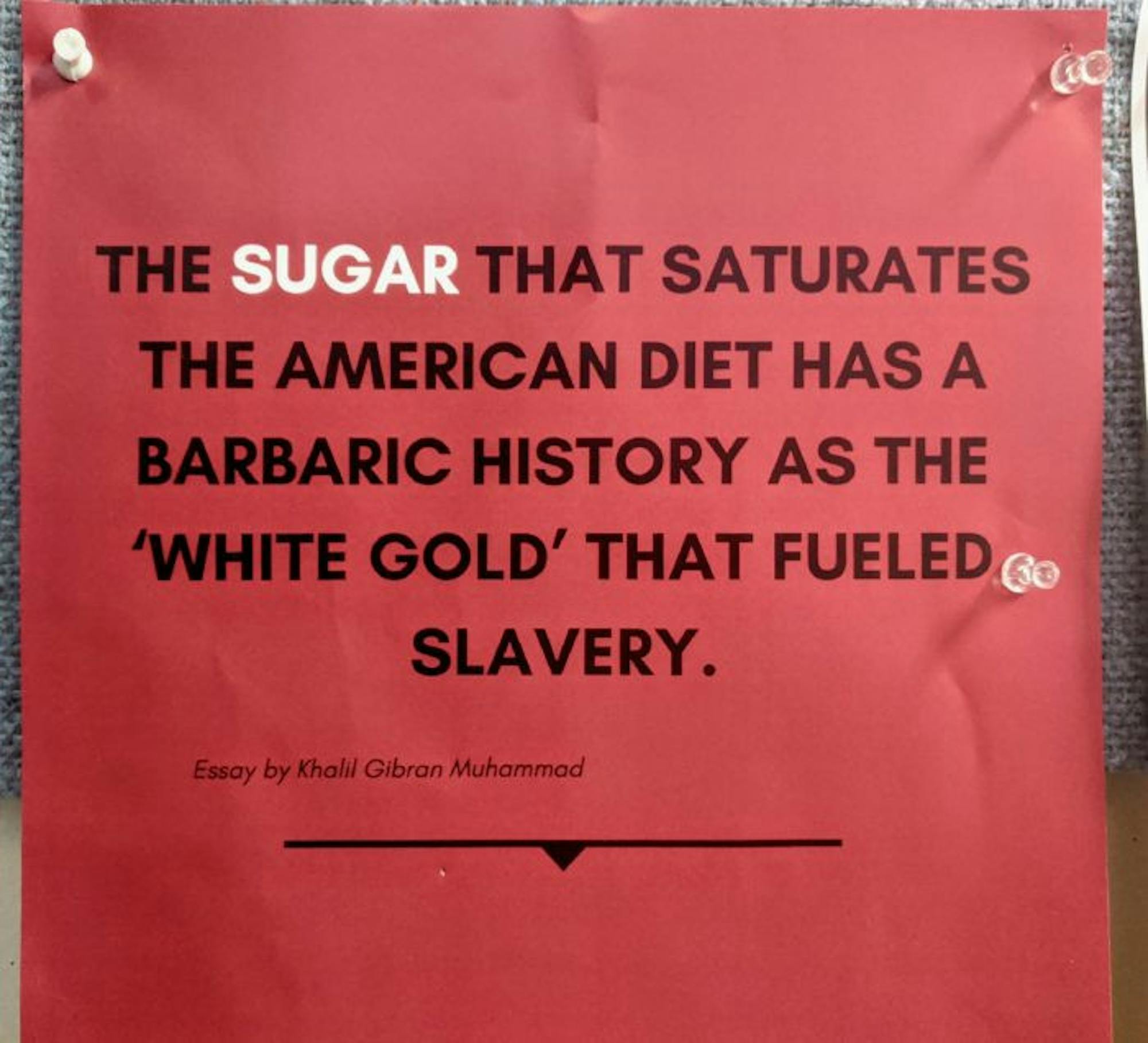Inspired by the New York Times Magazine’s “The 1619 Project,” the Center for Women’s Intercultural Leadership (CWIL) director Mana Derakhshani, along with Office of Civic & Social Engagement (OCSE) director Rebekah Go and junior Tyler Davis, organized the circulation of dozens of posters around Saint Mary’s that feature provocative quotes from the series.
“If we do not endeavor to learn about the past, it is harder to make sense of the present and find a way to a better future” said Derakhshani about the necessity of bringing the posters to campus.
The 1619 Project is a commemoration of the arrival of the first enslaved Africans to Jamestown, Virginia, 400 years ago. On its website, The New York Times Magazine describes The 1619 Project as “a special project that examines the many ways the legacy of slavery continues to shape and define life in the United States.”
Davis said she sees the project as a reminder of all the contributions African Americans have made throughout history, with a focus on the current plight of American Americans in this country today.
“The 1619 Project is kind of like a memorial, or reminder, of the first known slave ship hitting American shores,” she said. “It highlights the results of Africans being brought to America, and it discusses capitalism, stereotypes, music and all the contributions African people brought to America. It makes people aware of the influence [African Americans] have in this country today.”
In reference to the creators of The 1619 Project, Davis said she believes the project was created to further educate people on the value of African Americans in America.
“I think they put it out there so we can all further know the truth of the African American experience and the contributions they made to this country,” she said. “[The 1619 Project] is an attempt to educate people on the value of life and bring more humanity to us.”
Derakhshani said she felt the posters would be an accessible way for students to engage with the history of slavery and bring attention to The 1619 Project itself, as Derakhshani believes that “the present has its roots in the past.”
“I thought it would be good to find a way to educate the campus about the significance of the year,” she said. “I believe that it is important to acknowledge the history of slavery in the U.S. and that most people remain quite ignorant, so my purpose was to educate. There are a number of articles on the website that may help to better understand where we are in the U.S. currently in terms of race relations.”
Davis designed the posters, and she said she wanted to make sure they were impactful but not off-putting to some who may still be learning about African American history.
“As a black person, I want people to know my history without being afraid of it,” she said. “I don’t want people to be afraid to ask questions. I see these posters as a positive resource for people who are curious and who want to ask questions constructively without fear.”
Davis, an art major with a minor in justice studies, said art is akin to advocacy and her interest in studio art has allowed her to pursue various creative avenues while still letting her engage in current political discourse.
“When I first came to Saint Mary’s, I was an anthropology major, but I knew that something was missing,” she said. “I wanted to create, so with art I can still pursue all of those things like anthropology, global studies, justice and philosophy, yet still be able to create and educate through visual means.”
Davis said she sees the posters and The 1619 Project itself as “a movement towards education and change.”
“It’s the 400 year anniversary of 1619, and many things have gotten better for black people, but we know that for so long people wanted to oppress us and keep us ignorant,” she said. “I want people to ask questions and not to be afraid of sounding ignorant. We know that you don’t know, and we want you to educate yourselves on the matter because our livelihoods are affected by people not knowing about us. Ignorance can be violent and harmful, so all we’re asking you is to meet us halfway.”













